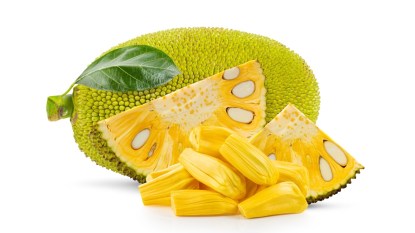Why Going Meatless Once a Week is So Good for You — And the Environment
Small changes really add up.

Going meatless from time to time is one of the single best things you can do for yourself and the environment. At least that’s the message I kept hearing: My social media feeds are full of people posting about eating vegetarian a day or two a week and I keep drooling over all the #MeatlessMonday recipes popping up in my feed.
But I still didn’t really understand why it is so beneficial, so I set out to get some answers.
How did the whole Meatless Mondays thing start?
Before we dive into going meatless, let’s take a look at the history of this movement. Meatless Monday actually started during World War I. Introduced by the U.S. Food Administration to help ration food consumption and aid in the war effort overall, millions of families signed up to do their part for America and skip meat once a week long before it became a hashtag.
This movement was reintroduced in 2003 as part of a public health awareness campaign with two main goals: two promote less meat as a way to be healthier and to improve the overall health of the planet.
Meatless Monday is still going strong today. It’s even made its way into schools, hospitals, and businesses with benefits that are just as important as they were in past decades.
So how does going meatless improve your health?
It’s easy to get overwhelmed when reading about becoming a vegetarian or even a flexitarian online, so we asked Becky Ramsing, a registered dietician with the Hopkins Bloomberg School of Public Health, to break it down.
“People who consume a diet high in vegetables, fruits, legumes, and whole grains have a lower risk of heart disease, Type 2 diabetes, obesity, some cancers, and stroke,” she says. “Additionally, eating less meat, more vegetables, whole grains, and fiber supports a healthier gut.”
Meat does play a significant role in our diet, but in general, she says most Americans are consuming more than what’s recommended per dietary guidelines. According to the American Heart Association, the average person should only consume four to five servings of lean meat in a single week. So by making small, regular changes, you really can impact your health in a positive way.
Of course, it’s important to remember that when you cut out meat, you have to be really conscious of what you’re replacing it with. If you nix meat but consume a lot of processed or sugary foods, then you’re not doing much to help yourself. Going meatless for a day or more really can be great for your health, as long as you’re making smart food swaps.
What about just switching to lean meats?
It’s definitely true that not all meats are created equal. Lean cuts of beef and pork, skinless chicken, and fish can go a long way to supporting a healthier diet overall. This is especially important to consider if you follow a keto diet.
For those concerned about protein consumption overall, Ramsing says it’s more about looking at protein choices in all foods, not just with your meat. “They key is to make sure you eat protein-rich food throughout the day,” she says. “Good sources of plant-based proteins are beans, nuts, lentils, tofu, seitan, and whole grains. Eggs and dairy, in moderation, are also great sources of protein.”
But let’s get back to the question at hand: Why should you go meatless for at least one day a week? The environmental benefits alone should do the convincing.
So how does going meatless help the environment?
With so much emphasis on reducing our carbon footprint on the planet, it feels good to know that you actually have an impact by reducing meat consumption. But does it actually work? Again and again, scientists, researchers, and experts say yes.
“Raising animals for food uses a disproportionate amount of water and resources compared to plants,” Ramsing says. “For example, one kilogram (approximately 2.2. pounds) of beef takes about 40 times more water to produce compared to the same amount of vegetables. Currently, animal agriculture is responsible for about 70 percent of the world’s freshwater use.”
The other area it matters is in greenhouse gases — the agriculture sector is responsible for about a third of all greenhouse gas emissions. “Livestock production in particular contributes an estimated 14.5 percent of all global greenhouse gas emissions from human activities, which is slightly more than the entire transportation sector,” explains Ramsing.
Beef is the most draining on the environment. According to the Guardian, “Popular red meat requires 28 times more land to produce than pork or chicken, 11 times more water and results in five times more climate-warming emissions.” The impact is even more if you compare it to plant crops.
There are varying reports on how much of an impact this has on climate change overall, but there’s no doubt that producing meat from start to finish takes more energy and resources when veggie crops.
Often times, climate change and environmental issues seem so big and out of our hands, but every time you eat a vegetarian meal, you’re putting out about two and a half times less carbon emissions. If reducing meat consumption a bit overall can help in small part, then sign me up.
Are there other benefits to going meatless?
It’s a great way to cut costs! You’ll save on your weekly grocery bill, especially if you’re cooking for and feeding multiple people. It can be expensive to eat fresh fruits and veggies or to go organic, but in comparison to buying meat, you’ll still be ahead. “Reducing the amount of meat you eat can decrease the amount of money spent on food,” Ramsing says. “On average, it costs several times more to purchase a pound of meat than a pound of beans.”
Still not convinced?
Of course, at the end of the day, many of us just like the taste of meat. This is why Ramsing advises taking it one day at a time. “The best advice for someone who is thinking about reducing their meat intake is to start small,” she says. “Meatless Monday is a great practice for meat eaters who are interested in reducing their consumption but not sure if they will like it. Making a one day change often leads to other changes, such as trying a vegetarian meal when eating out, eating less meat the rest of the week, trying new recipes at home, or eating more vegetables. Small changes add up, and you will build your confidence and start enjoying a whole new world of flavor.”













